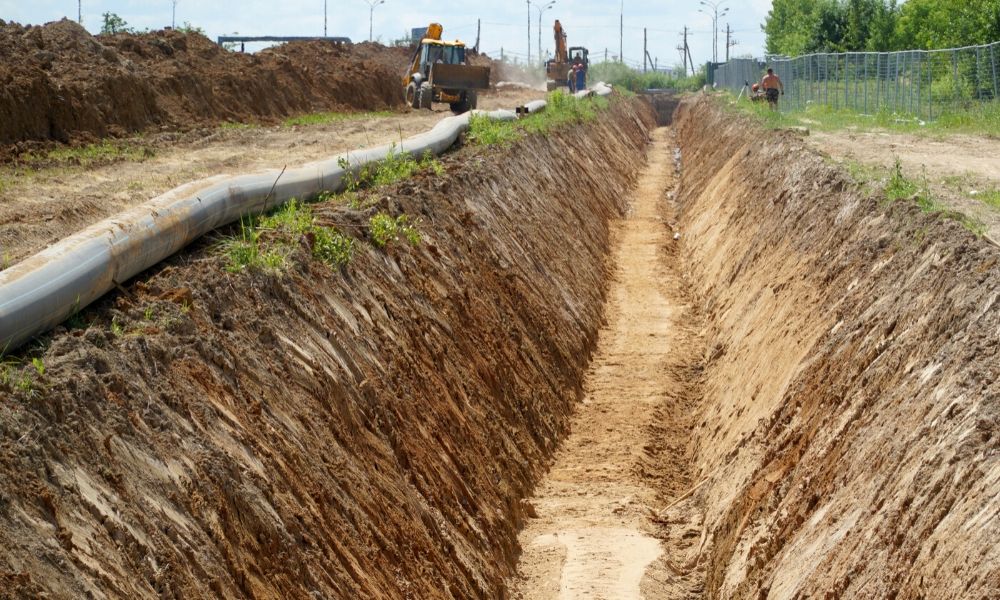
Understanding what a trench liner is involves knowing the different types of liners and their applications. Drop-in liners are available in many different shapes and sizes and can be used in a variety of different industrial settings. Flexible trench liners are one such example and they are popularly used for industrial applications. They are also referred to as drainage liners from time to time. Crafted from custom-fabricated PVC material, trench liners provide reliable, leak-free protection that will maintain their structural integrity for many years to come. This guide explores what a trench liner is, as well as outlines the benefits of using a trench liner in a variety of different settings.
Understanding what a trench liner is
Trench and drainage liners are a prefabricated PVC sheet that is used to provide leak-free protection in a ditch, trench, or channel. These PVC sheets are pre-cut to meet the exact dimensional requirements of the trench in question, ensuring that the fit is exact and effective in reducing the potential for leaks. Trench liners are designed to increase efficiency in operations that require the use of a trench to transport or hold liquids. They can be used to store potable water for several different uses or to transport liquids to different locations within a job site. Drainage and trench liners have many uses in industrial settings, including lining irrigation trenches.
Industrial applications for trench liners
As we’ve stated, trench liners are utilized for a variety of different applications. Generally, however, they are utilized in an industrial setting to store or transport large volumes of liquid in an efficient manner. Some of the most common applications for trench liners include drainage, agricultural irrigation, or as a secondary containment unit for large quantities of liquid. This is why they are also known as drainage liners. In instances of agricultural irrigation or draining, these liners are more often used to transport liquids across large distances, whereas with secondary containment, they are utilized to store liquids for longer periods of time. Second containment isn’t the only advantage of choosing trench liners for your industrial, commercial, or agricultural application.
Benefits of a trench liner
Trench liners offer many of the same benefits as other types of industrial drop-in liners. In addition to providing additional security and promoting the structural integrity of the trench itself, trench liners can also help prevent against erosion. This is particularly important in instances where the liquid is being transported rather than stored, as with agricultural irrigation or drainage systems. Over time, the transportation of liquids will begin to wear down the trench itself, thereby impeding the efficiency with which the liquids are able to flow. Installing a trench liner will help reduce the likelihood of erosion and will allow the trench to maintain its structural integrity for much longer.
Trench and tank lining companies, including our team here at Royal Liner, take it upon themselves to ensure all drop-in liners are installed correctly. This further reduces the risk of leaks and damage as well as increasing the overall effectiveness of the trench itself because nobody wants a trench that doesn’t perform its primary function the way it’s supposed to. Explore the rest of our blogs or contact us directly to gain a more comprehensive understanding of trench liners.
